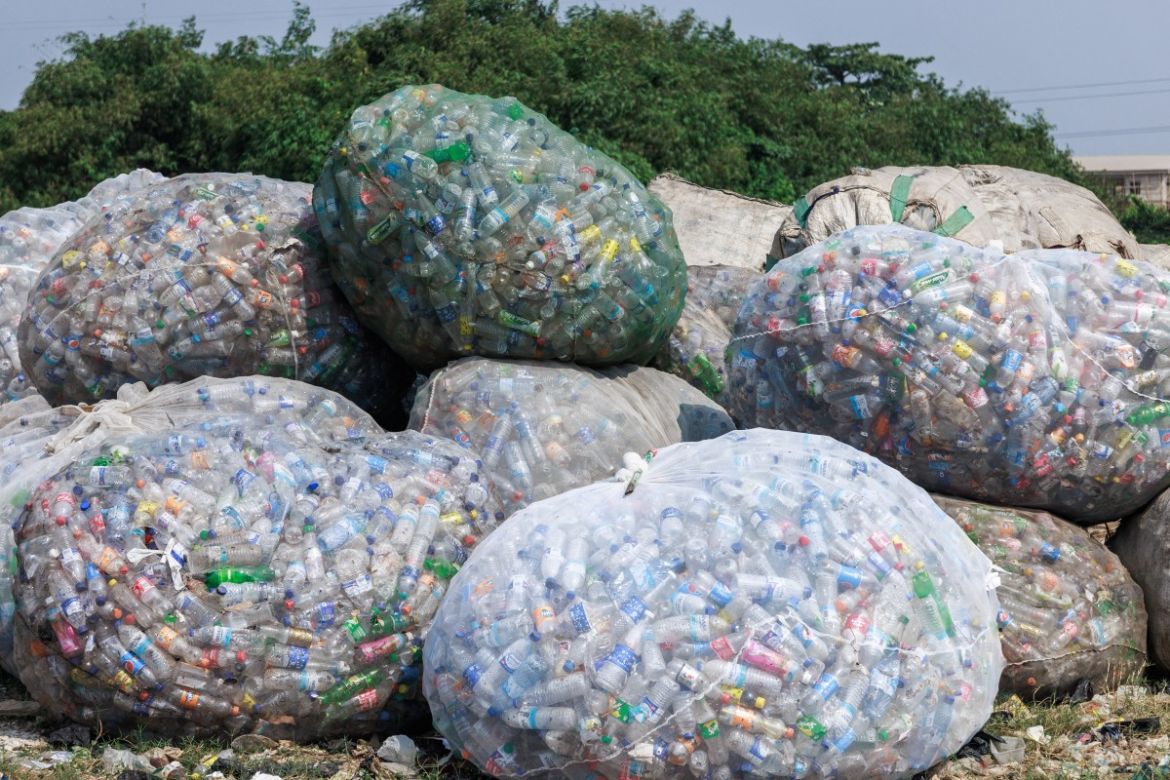When Lagos speaks, Nigeria listens — not just because it's the largest city, but because it's a restless pulse, a microcosm of the country’s ambition, chaos, and contradictions. So when the government announced a definitive ban on single-use plastics — including Styrofoam food containers and disposable bags — it sent more than shockwaves. It stirred something deeper. A reckoning. One not just about the environment, but about the kind of city Lagos wants to become.
For decades, plastic has quietly ruled the streets of Lagos. From the sweaty bus conductor’s bag of pure water sachets to the roadside amala joint dishing out hot food in Styrofoam packs, plastic wasn’t just packaging — it was culture. It was convenient. It was survival.

Read Also: Uphorial Sweatshirt

But that survival came at a price. When the rains fall in Lagos, they don't just water the earth. They remind us. Gutters choke with waste. Roads flood. Communities drown in the debris of their own making. For years, environmentalists have sounded the alarm: Lagos was becoming uninhabitable by its hand. And plastic — silent, durable, unapologetic — was the villain that never left. This ban, announced by the Lagos State government and enforced through the Ministry of the Environment, isn’t just a policy. It’s defiance. A line drawn in the sand. But beyond the headlines, there’s a human story of street vendors, small businesses, manufacturers, and everyday Lagosians whose lives are tethered to the very items now deemed illegal.
Take Iya Basira, for instance. For fifteen years, she’s sold rice and stew to workers in Obalende from a makeshift stall. Her Styrofoam containers made business possible — cheap, lightweight, disposable. Now, she stares at stacks of banned inventory, unsure how to pivot, how to afford biodegradable alternatives that cost twice as much. To her, the plastic ban isn’t just about the environment — it’s about livelihood. Yet, at the same time, Lagos is full of young people like Tunde, 28, an industrial designer who sees the ban not as a crisis, but as an invitation. For him, this is an era of possibility: reusable containers, innovative packaging, biodegradable tech. He’s building a brand that offers eco-friendly alternatives sourced locally. But he knows it’s an uphill climb. “People want change,” he says, “until it’s inconvenient.” That’s the paradox Lagos now finds itself in. A city of 20 million balancing urgency with empathy. Policy with people. Sustainability with survival.
This is where leadership matters — not just governmental, but communal. The ban will test not just the efficiency of enforcement, but the elasticity of culture. Will markets adapt? Will food vendors and shopkeepers receive support? Will plastic producers be guided toward cleaner manufacturing or simply punished into extinction? There’s also a psychological shift required. Nigerians are resourceful, no doubt. But plastic has conditioned us. We’ve built lives around disposability — not just of products, but sometimes of principles. The plastic ban, then, isn't just environmental. It's philosophical. It demands that we reimagine how we consume, how we discard, and how we live.
But there’s hope. It glimmers in community-led cleanup drives in Ajegunle. In tech startups, converting plastic waste into building materials. In schoolchildren learning to make crafts from recycled bottles. The movement is alive, but it needs fuel — not just laws, but stories, solutions, solidarity. In truth, Lagos doesn’t have a plastic problem. Lagos has a people problem, a governance problem, and a design problem. Plastic is just the symptom. But this ban, imperfect as it may be, is a step — a necessary disruption that could change everything. Because cities aren’t just built with roads and skyscrapers. They’re built with choices. And maybe, just maybe, Lagos is finally choosing to breathe.



